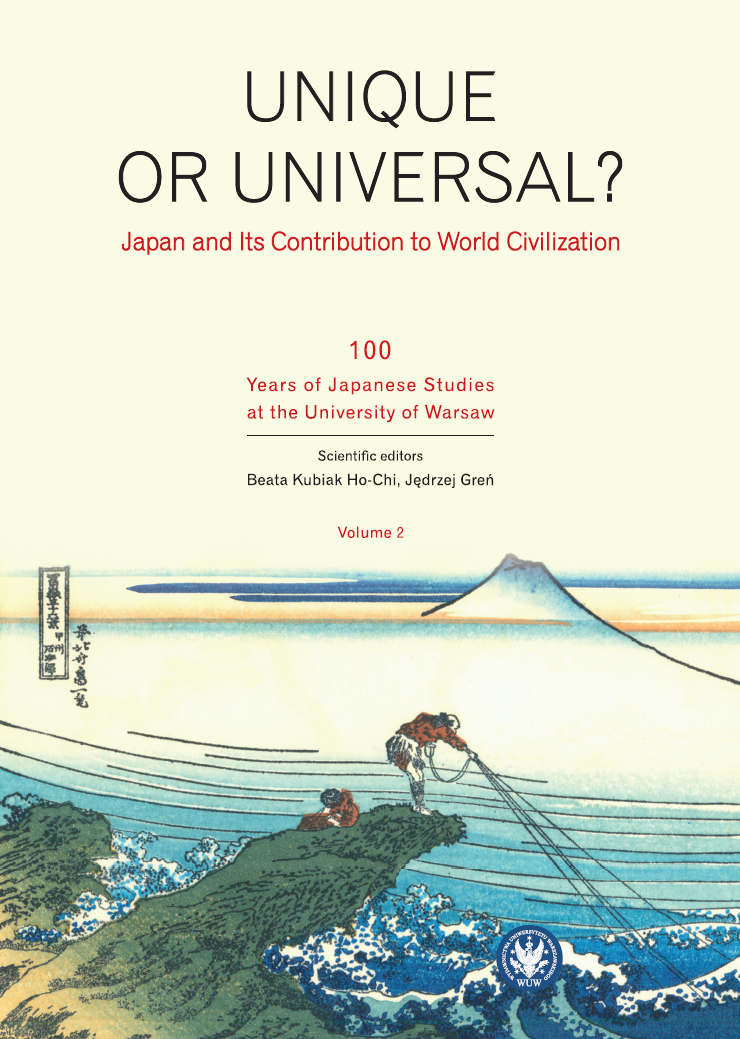Culinary Continuity
Culinary Continuity
Time Travel and Unchanging Flavors in Recent Japanese History Films
Author(s): Sean O’Reilly
Subject(s): Cultural history, Studies of Literature, Other Language Literature, Philology
Published by: Wydawnictwa Uniwersytetu Warszawskiego
Keywords: cinema; history; Japan; food; Oda Nobunaga; time travel; culinary continuity
Summary/Abstract: What is the link between a country’s past and its present, and how can anyone possibly verify that link? The answer is time travel, allowing direct firsthand experience of both eras, and thus making it possible for the traveler to confirm the existence of foods which taste the same throughout time, forming what I call “culinary continuity.” The concept of certain foods as universal and unchanging, linking past with present via the convenient plot device of a time slip, came into the mainstream with the 2010 film "A Boy and His Samurai" ("Chonmage purin"), featuring a time-traveling samurai who slips forward in time and then brings his crème caramel skills back to the Edo era with him, retroactively (and paradoxically!) introducing the universal delicacy to Japan. But the film did not connect with audiences. The 2017 hit "Honnōji Hotel" adjusted its formula to make a more successful continuity argument, fueled this time by the putatively ‘unique’ flavors of kompeitō and abura mochi, in the process offering a dangerously de-villainized view of Japan’s cultural history. The savagery of the bloody past is stripped away, replaced with saccharine-sweet sentiments like “I want to create a world where everyone can live in peace and smiles.” In the absence of meaningful criticism, the film’s 1.5 million viewers might well be convinced by its (mis)use of culinary continuity. I analyze Honnōji Hotel’s reimagining of history, arguing that the film’s box-office success relative to A Boy and His Samurai happened because of this food-fueled appeal to unique flavors of long-ago Japan, and its ‘de-clawing’ of warring states Japan and its greatest ‘hero’ Nobunaga. Contemporary Japanese audiences appear to reward films which focus more on unique-to-Japan culinary continuity linking Japan ’s glorious past and peaceful present.
Book: Unique or universal. Japan and its Contribution to World Civilization. Volume 2
- Page Range: 196-215
- Page Count: 20
- Publication Year: 2023
- Language: English
- Content File-PDF

